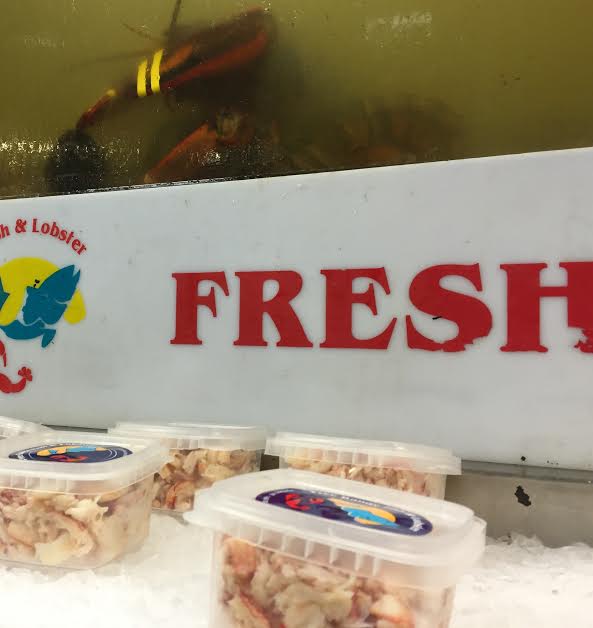This post originally appeared on the Today Parenting Team blog.

I was picking out a piece of haddock when my son screamed from over by the lobster tanks.
“MOM! Look where they put the crab meat!”
I saw nothing unusual about the placement of the plastic containers, and I hurried up my haddock order, thinking my tween son might be headed for a meltdown.
“MOM! They put the crab meat DIRECTLY under the lobster tank!” He pointed at the cases of crab meat sitting on ice and looked at me like I was missing something completely obvious.
Then came the exasperated sigh. “That’s like if they chopped up monkeys and put them in plastic containers and made trapped humans look at them all day long.”
This would not have been my first thought.
“It’s mean,” he said matter-of-factly.
My son has high-functioning autism, also known as Asperger’s syndrome. One of the hallmarks of this different brain operating system is a meticulous attention to connections and details that the rest of us would never see.
As a journalist, I’ve written about tech companies hiring workers with high-functioning autism because of their unique ability to detect security breaches and software bugs.
The Israeli army enlists agents with Asperger’s for a top-secret intelligence unit that scans military satellites for patterns indicating enemy activity.
People with Asperger’s make connections that seem obvious to them, but not to the rest of the world.
They’re often called quirky. Or weird. Because they see things that we don’t.
And while my son and his unique fixations might not be saving credit companies from security breaches, saving tech giants from software glitches, or saving the lives of Israeli soldiers, he is highlighting a depth of compassion that the world could really use right now.
He sees below the surface.
Imagine living in a world where the majority of people perceive logical cruelty in making live lobsters look at the chopped-up crabs?
It’s sensitivity taken to one extreme, for sure.
But we’ve gone to the other.
What if these sensitive souls are here to help bring us back to the middle? To a place of intentional empathy, where we think about and care about how we impact the suffering of others, and modify our words and actions accordingly?
These kids have compassion down to a science.
The same sensitivity that makes a shirt tag or a sock seam feel like sandpaper also makes my son feel sad for the fish with a hook in its mouth, and wonder why more people don’t talk about that.
These kids feel things deeply.
There’s a growing network of organizations offering support services and corrective therapies for children on the autism spectrum. As parents, we hear a lot about medical interventions and mainstreaming.
There are scientists trying to find “cures.”
And despite the fact that high-tech companies and military superpowers are beginning to see neurodiversity as a strength, the rest of society tells these kids they have a lot to fix and a lot to learn.
What if they are here to teach us?
